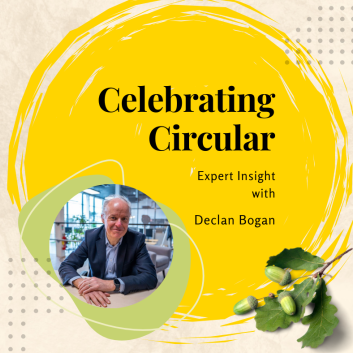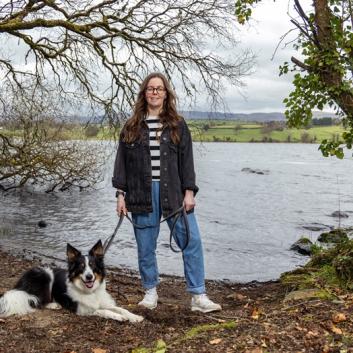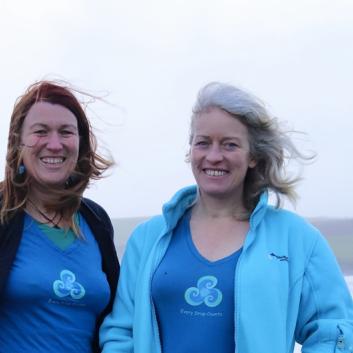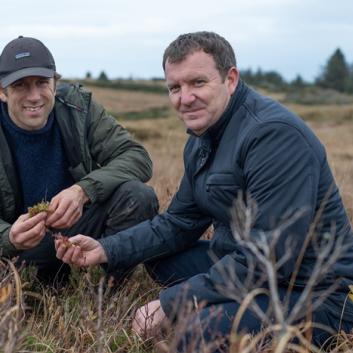Can sustainability be funny?
Master students can choose to write comedy scripts on sustainability issues as part of a unique course at the Management Program of the Vienna University of Economics and Business.
Dr André Martinuzzi, creator and leader of this trailblazer course, shares insights on using the power of humour to help students better understand and deal with complex sustainability topics.
Environmental protection, social responsibility, and sustainable development are often perceived as killjoys, and young people typically feel pessimistic about their future.
When we started looking for new and innovative ways to motivate students to engage with serious sustainability issues, we found that humour might be a promising method. It has the potential to help increase students’ self-motivation and awareness of current sustainability challenges, such as climate change or poverty.

The idea sparked as I watched late-night comedy shows for quite some time and was very impressed by John Oliver’s ‘Last Week Tonight’ and Hasan Minhaj’s ‘Patriot Act’. Instead of making fun of daily life or commenting on day-to-day politics, they both explain scientifically challenging subjects in a hilarious way.
The more I watched these shows, the more I asked myself if it was possible to give students the task of developing comedy scripts instead of writing seminar papers.
On this basis, with two assistants, Florian Findler and Angelo Spörk, we designed and continuously improved a course where students use humour by working in a group, creating scripts in the style of late-night comedy. To our knowledge, no one has tried this before.
Within the scripts, humour is not used to make fun of serious issues. Instead, it is used to illustrate sustainability challenges in a scientifically sound and easily understandable way while raising awareness.
In order to do that, students have to understand the basics of humour and comedy scriptwriting, need the courage to be funny and have the freedom of creativity while dealing with serious and rather complex issues.
Many of them tell us that humour helps them communicate better about challenging topics in their peer groups and reach people who would otherwise not be interested in the subject.
Students have created scripts that cover various topics such as the Sharing Economy, E-mobility, fast fashion, greenwashing, food waste, supply chains, and smart homes.
A good punchline is surprising and reveals a more profound truth.
Therefore, developing good comedy takes expertise because humour is more than just fooling around.
Based on the experiences and evaluations of the three courses we already delivered, we learned a few lessons:
- Humour is a craft and not a talent, which requires practising.
- Students better understand a specific topic by writing comedy scripts than by writing standard seminar papers.
- Humour can be integrated into courses that are not genuinely funny. Students reported that this approach helped them to boost their creativity and imagination.
Our experience has also shown that humour can point out grievances. At the same time, exaggerated characters can make people realise their own unsustainable behaviour or ask the question, 'Do we really want to go there?’.
We created a dedicated website to share more about our learnings so others can explore options for implementing this method.

Naturally, there are some challenges in integrating this approach into teaching.
Teachers may see the use of humour as inappropriate for academic subjects and find it beyond their abilities to support students sufficiently through empowerment and steering. The question also arises if this approach can be used on topics like extinction, climate change, or human rights, which are very serious issues and where urgency could be diluted by humour.
Of course, this approach is unsuitable for classes that aim to teach the basics as quickly as possible.
For the students, humour can also be a coping strategy to better deal with emotionally stressful issues such as biodiversity loss, human rights violations or climate change.
For example, one student said, 'if you don't laugh about it, you should cry', while another student shared, "humour helps me not to feel powerless, to gain emotional distance and to be able to talk about things that I otherwise tend to repress".
Students look forward to this course because it is entirely different from the typical classes at a business school.
The course design consists of the following elements:
- Students work in groups of 5-6 on major sustainability challenges, such as land use, low-cost airlines, cruise ships, fast fashion, food waste, animal suffering, or bee mortality.
- Together they carry out brief background research and co-develop a collection of materials on the recent problem, its causes and possible solutions.
- Simultaneously, they take part in basic improvisation theatre training, gain insight into the building blocks of humour and learn how to develop sketches, jokes and punch lines.
- Each student group develops the concept for a comedy script, containing an elaborated storyline and first humorous examples.
- In several rounds of rehearsals and presentations, they receive feedback regarding scientific background, storytelling and humour.
- Finally, the students give an 8-10 minute performance of their scripts in front of the classroom.
The course has already been implemented three times, received excellent feedback from the students and won the "Best of Austria Award" thanks to its innovative approach.
Headline image: Getty Images
This content is a piece of an article originally published in the "Make change happen" issue of Profit with Purpose Magazine.
The Summer 2022 edition of the magazine is focusing on making cities sustainable and inclusive, and is available here >>>
















